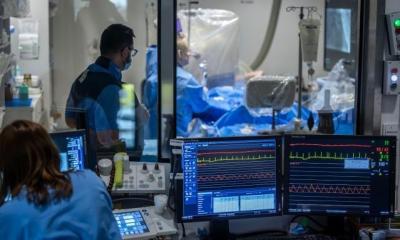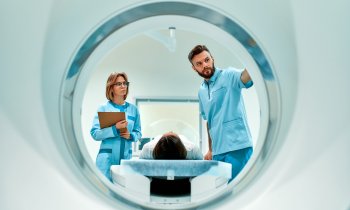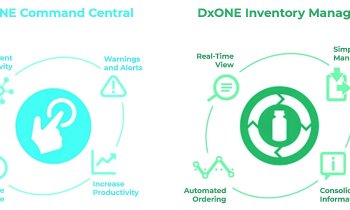European focus
Cross-border intensive care medicine
Anyone who becomes seriously ill or has an accident while on holiday would like to be treated as well as they are at home. It is vitally important for the patient that the doctor has been well trained, in particular in intensive care medicine
A commission at the European Union under the leadership of Prof. Kai Zacharowski, the Director of the Clinic for Anaesthesiology, Intensive Care Medicine and Pain Therapy at the Goethe University Frankfurt is striving for uniform standards across Europe. This commission - shortened to MJC ICM for Multiple Joint Committee Intensive Care Medicine - has worked out general guidelines, which the member states are now expected to ratify. This will certainly not happen without compromises.
"United in diversity" - this is the motto of the European Union. At the level of professional training this diversity can also be obstructive, as it restricts the freedom there actually is in this diversity. And in the field of medicine diversity can also become a disadvantage to the patient. The regulations in intensive care medicine are particularly inconsistent.
For example, in Germany medical practitioners initially finish their specialist medical training before they can be further trained as a practitioner in intensive care medicine, while in Spain, intensive care medicine is a specialist medical training directly connected to study. It is not surprising that a change within Europe for practitioners of intensive care medicine might be difficult.
"Young doctors do not want to commit themselves for their whole professional life to the field of intensive care medicine", Zacharowski gives the reasons for the organization of training in Germany. Shift work and the considerable psychological strain suggest that doctors should not commit themselves to intensive care medicine at too early a stage, according to the professor, who also represents Germany in the Union Européene des Médicins Spécialistes (UEmS).
He considers a training period of a total of seven years to be essential: "After three years we cannot allow a young colleague to work independently". In the end, however, the length of training remains a matter for the individual states. There should, however, be uniform standards in the contents. Guidelines for the medical professions are drawn up nationally, by health ministries or by professional associations. There are already obligatory general requirements for subjects such as heart surgery, anaesthesia or neurosurgery. Now there is also to be a new European framework for intensive care medicine, which was worked out in agreement with the national professional associations.
"Intensive care medicine has changed a lot in the last few years", says Zacharowski: "We can now revive people, who would certainly have died ten years ago". This is resulting in new challenges for intensive care medicine and nursing treatment. A medical practitioner on the intensive care ward must competently manage the whole spectrum required in working with critically ill people: the replacement of organ functions, dialysis, artificial ventilation, the recognition and treatment of different types of blood poisoning, the correct use of antibiotics, the management of blood transfusions - and, not least, dealing with relatives.
On the basis of the EU-sponsored program, CoBaTriCE, a paper was drawn up, which Zacharowski presented to the European Commission at the end of 2014 . Before parliament decides on the guidelines, the various national authorities must have ruled on them. Zacharowski is expecting a conclusion by the end of the year, before then, however, he will have to have many discussions. Individual countries such as Great Britain have already indicated a positive response, reports Zacharowski. Nevertheless, compromises will have to be reached, as in the end a more extensive training also means higher costs. It is certain, however: If Europe is to draw closer, a uniform training is essential.
Source: Goethe University Frankfurt am Main
18.02.2015









